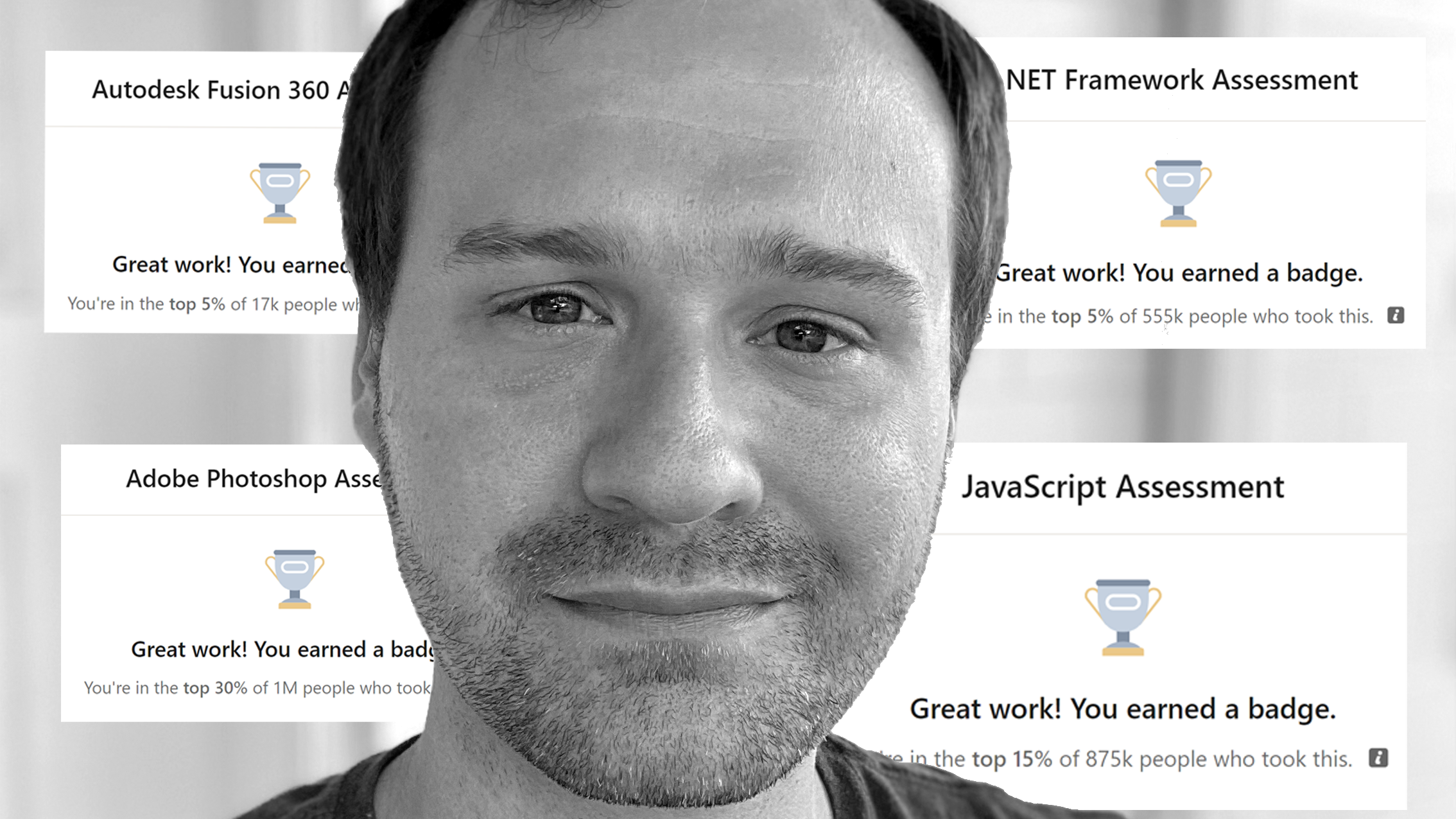Is This Cheating?
After clicking through the second LinkedIn assessment, I realized that what I was really assessing was how fast I could eliminate answers by searching for terms I was unfamiliar with on Google.
A long time ago, after completing a test in school, the teacher noted to the entire class that one of the answers had been on a poster hanging inconspicuously in the classroom the entire time. She said “if it’s available to you as a resource, it’s not cheating.”
Google is available to me as a resource, so I was using it to figure out answers for a LinkedIn assessments.
But was I following the spirit of these assessments? I decided not. Despite the reality that Google is always available to me in my day-to-day work, despite my belief that if you have a tool available as a resource you should use it, the nagging ethical considerations made me reconsider.
Feeling Validated
So, I stopped using Google for the rest of the assessments. And you know what? I didn’t fail. I was still able to show proficiency in the variety of tools, software languages, and business practices I’ve used throughout my career.
The way these assessments work is if you beat 70% of others in your knowledge, you pass. It’s not exactly a perfect science. I have a sneaking suspicion that I’m not the only one who attempted to use Google to better inform their answers, and I wonder how many of the 30% who pass are. I wonder what test tricks they know that I don’t. I can’t help but think they should use those tricks, whatever they are, if they are clever enough to discover them.
No matter, even when just using the ol’ grey matter between the ears, I was able to pass every assessment I took.
Ego, Bruised
Except for the one about Angular.
I had used Angular before, off-and-on, for years. I was using Angular back when it was called Angular.JS, back when the big hullabaloo about going from 1.x to 2 was going on. I had used Angular 1.x day-in and day-out over the course of six months to build a complex, dynamic web app, Angular 4 to build a proof-of-concept web app for a hackathon that netted our team 1st place, and Angular 6 to build a front-end portal for managing the drone system for Archer First Response Systems.
And yet I failed the assessment. It’s been about a year since I’ve put significant effort into any Angular app, and I’m rusty. I admit it. Whatever proficiency I had gained, I would need a week or two digging back in with an Angular app to bring that knowledge back to the forefront of my mind.
I didn’t feel good about the assessment as I was going through it. “I should know this!” I thought to myself, but it felt that the majority of answers were just outside my mental grasp. I wondered if I had ever gained proficiency at Angular at all, as if the experience I had building single page applications was just a fever dream.
The evils of imposter syndrome were sneaking in. But then again, I failed the assessment. Did I have imposter syndrome, or am I just an imposter?
This Is The Way
After this mild roller coaster of emotions in my attempt to validate my personal experience in an unbiased format, I stepped back to remind myself that assessments – and awards, and certifications, and endorsements – are only the shadow of my lived experience. They are not the value that I bring to the table as a professional, they are merely evidence of that value.
LinkedIn assessments are a particularly rough approximation to measure knowledge with. With the ability to use external resources, an ability that may be exercised by some but not all who take them, there likely is a skew in the results from those who chose to use those resources and those who didn’t. I hesitate to damn them as useless; there’s a time limit and you can’t Google foundational knowledge. I’d take a passed LinkedIn assessment to mean “you’ve probably used this at some point and know a bit about it.”
All assessments are flawed, and some are more useful than others. For LinkedIn assessments in particular, they only serve as a weak validation of what you claim to know. They don’t paint a picture of what you are like as an employee, they just help choose the canvas. There is no assessment on LinkedIn for intuition. No assessment for creativity, eagerness to learn, character, or grit. I believe that I have the capacity to learn, to grow, and to do what I set my mind to using whatever programming languages or technical skills it requires. While LinkedIn assessments have their value, they are but a tiny piece of the puzzle of evaluating professional worth.



